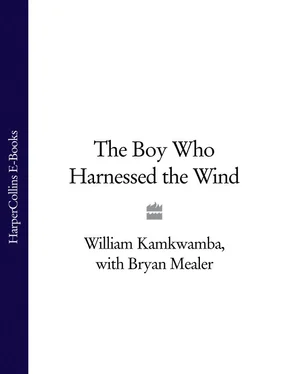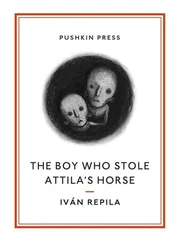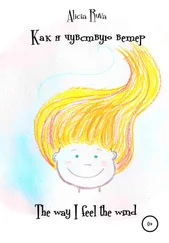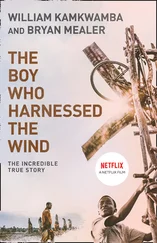If we had some pocket change from our parents, we stopped by Mister Banda’s shop for a cold bottle of Fanta or a handful of Dandy sweets, which Banda kept in a glass jar below the shelves of Drews liver salts and Con Jex cough tabs, Top Society Luxury lotions, Easy Black hair dye, long ribbons of Blue Band margarine, bars of Lifebuoy soap, and packets of Cowbell powdered milk.
Or if we were hungry, we pooled our money and headed to the kanyenya stand, which was really just a giant vat of boiling grease over a fire, next to the boozing center. There we bought delicious pieces of fried goat and chips for just a few kwacha. The man working the vat grunted, “How much?” and you answered, “Five kwacha.” He sawed off a good chunk from a carcass hanging on the gallows, causing the swarm of black flies to circle once, then land again. He dropped the meat into the oil, added a few more sticks to his fire to get a raging boil, then threw in a handful of sliced potatoes. When everything was finished, he tossed them onto the counter, along with a small pile of salt for dipping.
“You mother is a good cooker,” said Gilbert. “But she’s never made anything as good as this.”
“For sure.”
But most of the time we had no money, so we spent our afternoons in hunger and dreams. On our way home we played a certain game with the mphangala bush. Its bright red flowers made the perfect crayons for children, but its stems could also tell your fortune. One person uprooted the stem, then tried to split it down the middle by pulling it apart. If you did this without breaking the stem in half, you’d have meat for dinner waiting for you at home.
“ Eh man, you’re lucky. Let me come over!”
But if you broke the stem, that was a different story.
“Oh, sorry, friend, your mother’s at a funeral. You’ll find only water at home! HA! HA!”
Evenings in the village, just after the sun disappeared over the blue gums, were my favorite time of day. This was when my father and Uncle John—Geoffrey’s father—finished work in the maize and tobacco fields and returned home for supper. My mother and older sister Annie would be busy in the kitchen preparing the food, sending out all the delicious smells riding on the breeze. All my cousins would gather in the courtyard between my house and Geoffrey’s house to kick the soccer ball—made from plastic shopping bags we called jumbo s, which we then bound in twine. And as the light faded, perhaps a farmer from the next village would stop by.
“Mister Kamkwamba, I have something from my garden,” he’d say, opening a bundle of papers to reveal some nice tomato plants. They’d negotiate a price and my father would plant them behind the house.
During the rainy season when the mangoes were ripe, we filled our pails with fruit from the neighbor’s trees and soaked them in water while we ate our supper. Afterward, we passed the fruits around, biting into the juicy meat and letting the sweet syrup run down our fingers. If there wasn’t any moonlight to continue playing, my father gathered all the children inside our living room, lit a kerosene lamp, and told us folktales.
“Sit down and hush up,” he said. “Have I told the one about the Leopard and the Lion?”
“Tell it again, Papa!”
“Okay, well…one day long long ago, two girls were walking from Kasungu to Wimbe when they became too tired to continue.”
We sat on the floor, hugging our knees against our chests and hanging on every word. My father knew many stories, and the Leopard and the Lion was one of my favorites. It went like this:
Rather than taking a nap in the dirt, the two young girls looked for a clean, quiet place to sleep. After some time, they came across the house of an old man. After making their request, the old man said, “Of course you can stay here. Come on in.”
That night when the girls were fast asleep, the old man snuck out the door and walked into the dark forest. There he found his two best friends, the Leopard and the Lion.
“My friends, I have some tasty food for you. Just follow me.”
“Why thanks, old man,” the Leopard said. “We’re coming straightaway.”
The old man led his two friends through the forest and back to his house. The Leopard and the Lion were so excited for their meal they even started singing a happy tune. But as they were approaching, the two girls happened to wake up. They felt refreshed after their nap and decided to continue on their journey. Not seeing the old man, they left a kind note thanking him for the bed.
Finally, the old man arrived at the house with the Leopard and the Lion.
“Wait here and I’ll go and get them,” he said.
The old man saw the bed was empty. Where did they go? he wondered. He looked for the girls but couldn’t find them. Finally, he discovered the note and knew they were gone. Outside, the Leopard and the Lion were growing impatient.
“Hey, where’s our food?” said the Leopard. “Can’t you see we’re salivating out here?”
The old man called out, “Hold on, they’re here someplace. Let me find them.”
The old man knew if the Leopard and the Lion discovered that the girls had gone, they would surely eat him for supper instead. The old man kept a giant gourd in the corner of his house for drinking water. Seeing no other option, he jumped inside and hid.
Finally, after waiting so long, the Lion said, “That’s it. We’re going in!”
They broke open the door and found the house empty. No girls, no old man, no supper.
“Hey, the old man must’ve tricked us,” said the Leopard. “He’s even left himself.”
Just then, the Leopard spotted a bit of the old man’s shirt hanging out from the gourd. He motioned to the Lion, and together they tugged and tugged until the old man came flying out.
“Please no, I can explain,” cried the old man. But the Leopard and the Lion had no patience for stories and quickly ate him.
My father clapped his hands together, signaling the end of the story. Then he looked around to all of us children.
“When planning misfortune for your friends,” he said, “be careful because it will come back to haunt you. You must always wish others well.”
“Tell another, Papa!” we shouted.
“Hmm, okay…what about the Snake and the Guinea Fowl?”
“For sure!”
Sometimes my father would forget the stories halfway and make them up as he went along. These tales would spiral on for an hour, with characters and motives ever changing. But through his own kind of magic, the stories would always end the same. My father was a born storyteller, largely because his own life had been like one fantastic tale.
Конец ознакомительного фрагмента.
Текст предоставлен ООО «ЛитРес».
Прочитайте эту книгу целиком, купив полную легальную версию на ЛитРес.
Безопасно оплатить книгу можно банковской картой Visa, MasterCard, Maestro, со счета мобильного телефона, с платежного терминала, в салоне МТС или Связной, через PayPal, WebMoney, Яндекс.Деньги, QIWI Кошелек, бонусными картами или другим удобным Вам способом.












